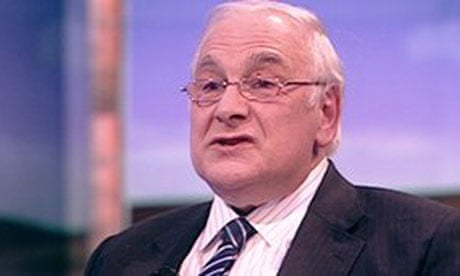A government commission set up to examine the establishment of a British bill of rights has "sidelined parliament and the prime minister", one of the commissioners has said after his resignation.
Michael Pinto-Duschinsky said he was forced to resign because of his belief that the UK parliament, rather than the European court of human rights, should have the final decision on issues of human rights. He claimed his fellow commissioners were ignoring the prime minister's desire to reassert the sovereignty of Westminster over the European court.
"After one year it is now clear that it has been intended all along to issue a report in favour of the status quo," Pinto-Duschinsky told the BBC's Sunday Politics show. "We have actually considered the question of parliamentary sovereignty only once in the whole year that we have been in existence."
The commission was set up to examine the possibility of a British bill of rights incorporating the European convention on human rights. Eight commissioners were appointed by Ken Clarke, the minister for justice, and Nick Clegg, the deputy prime minister. It is expected to deliver its recommendations later this year.
Pinto-Duschinsky said the commissioners had been selected to reflect the views of Clarke and Clegg that there was no need for a repatriation of powers to parliament.
"The commission answers to Ken Clarke. He and Nick Clegg set it up and selected the chairman. His civil servants run the commission and staffing. His hands are everywhere," he said.
"He [Clarke] is following the agenda of the human rights establishment, which is well represented on the commission. In doing so he is sidelining not only parliament but also the prime minister, and I consider that disloyal."
Clarke said: "I'm sorry that differences over process within the commission have led to Dr Pinto-Duschinsky's resignation.
"I have played no part personally in the workings and deliberations of the commission, which is independent of the government. I hope it is now able to complete its task and produce its report towards the end of this year."
Sadiq Khan MP, Labour's shadow justice secretary, said: "The human rights commission appears in disarray. Reports of resignations and tensions are a symptom of the coalition placing their survival ahead of fundamentally important issues like human rights protection."
A spokeswoman for the Ministry of Justice said she was aware of problems within the commission but that Dr Pinto-Duschinsky's letter of resignation had not yet been received.
"We are aware that there have been some internal difficulties within the commission on process rather than policy," she said. "The Ministry of Justice has received a letter to that effect from the commissioners and we will be responding in due course."
It is understood that the chairman of the commission, Sir Leigh Lewis, and six other members wrote to Clarke saying that Pinto-Duschinsky's presence was "impeding its progress".
A spokeswoman for the commission said that it was making "good progress on its work and will continue to do so".
"We have already discussed the issues of parliamentary sovereignty and democratic override at length," she said. "The commission will issue its final report to government by the end of the year in accordance with its terms of reference."




Comments (…)
Sign in or create your Guardian account to join the discussion